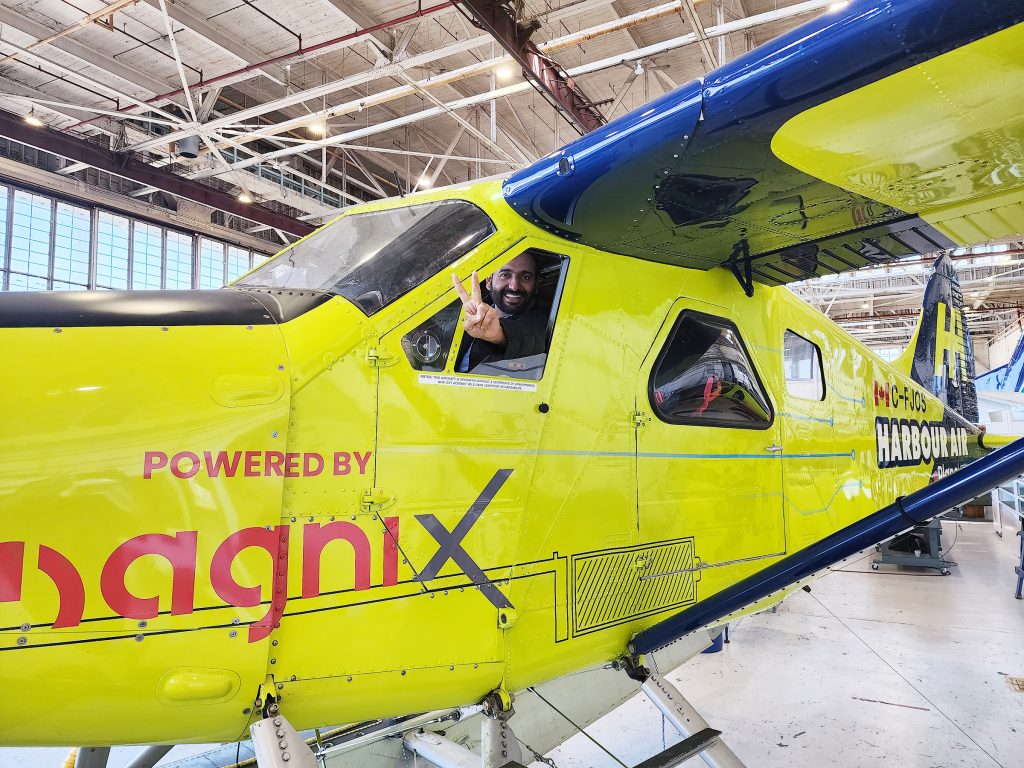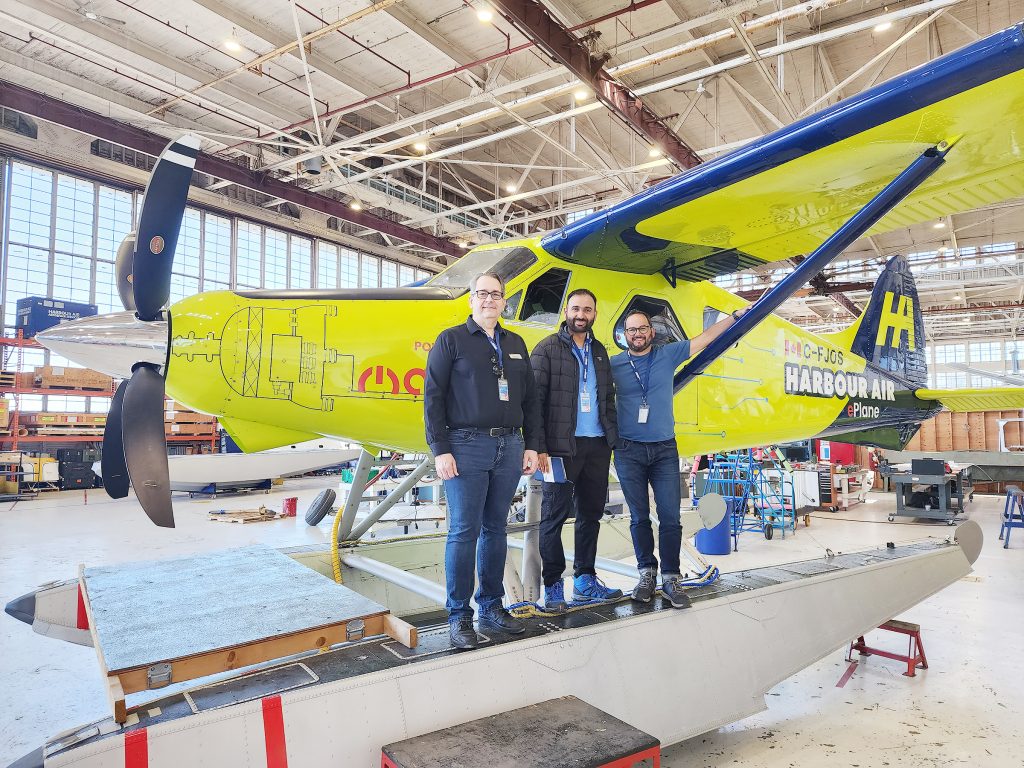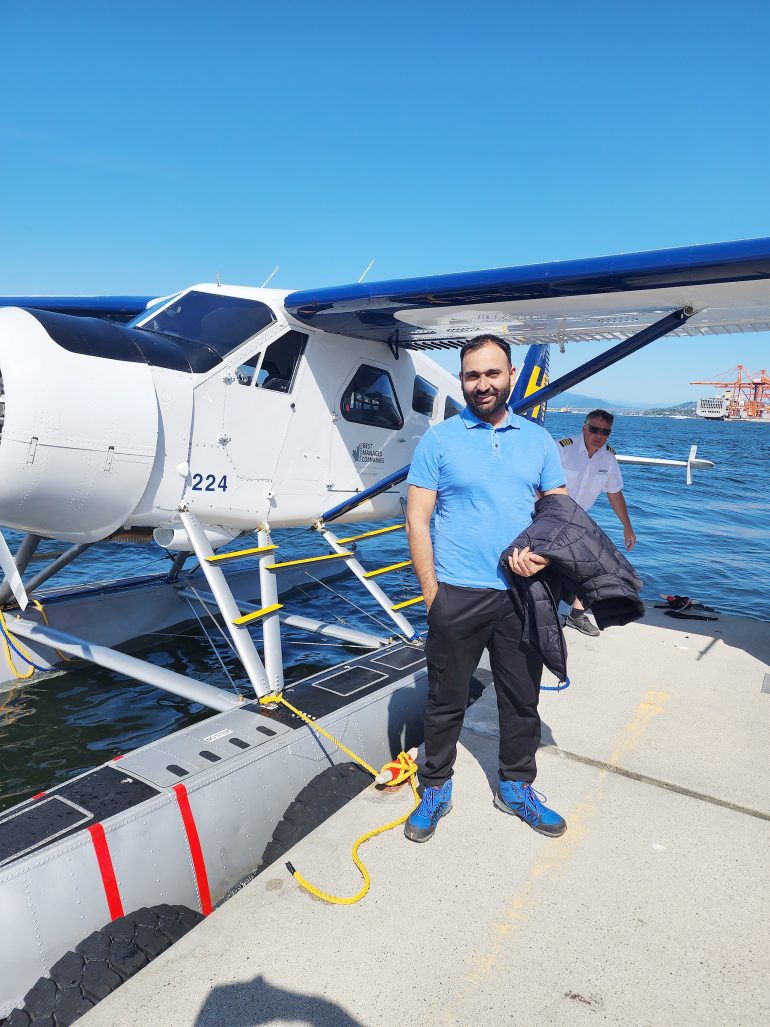By Pankaj Bagga
MOT (Management of Technology) MBA
Simon Fraser University, British Columbia
“The ePlanes are planning to begin operation by 2024”
A team from Simon Fraser University’s (SFU) Management of Technology (MOT) MBA program plays a pivotal role in developing the world’s first fully electric commercial aircraft by recently completing an industry consulting project with Harbour Air Seaplanes.
Starting in early May 2023, the students delved into the business case for ePlanes to analyze the potential market, regulatory environment, and strategic directives necessary for the ePlane project to realize the HAAS (Harbour Air Aerospace Services) electrification vision.
Harbour Air took to the skies with their ePlane for the first time in December 2019. Since then, they have clocked more than 70 test flights. Their focus is securing the necessary Transport Canada regulatory approval for their ePlane, a revamped DeHavilland of Canada DHC-2 Mk1 Beaver equipped with a MagniX magni650 electric powerplant.
For their industry project, the SFU MOT MBA students evaluated the electric aviation sector, gauging market dynamics, competition, and technological innovations and pinpointing potential challenges and opportunities.

With an average industry experience exceeding 15 years before the program, the students brought proficiency from diverse domains, including aerospace, venture capital, software development, robotics, and telecommunications.
Capitalizing on their rich backgrounds in technology and business, the students devised strategic proposals, aiding Harbour Air in steering through the burgeoning ePlane market. The collaboration enriched their grasp of the aviation industry’s electrification nuances and the inherent challenges of electric aircraft evolution.
“The SFU MOT MBA program prides itself on preparing students to tackle complex business and technology challenges,” said Beedie School of Business associate professor Carlos da Costa, the academic advisor and instructor who oversaw the project. “Working with Harbour Air on their ePlane project allowed our students to apply their knowledge and skills to a cutting-edge industry initiative, contributing to the future of sustainable air transportation.”
Throughout the industry project, the SFU MOT MBA students conducted extensive research, performed industry benchmarking, analyzed market trends and demand drivers, and engaged in strategic discussions with key stakeholders. The culmination of their efforts was a comprehensive industry analysis report, which provided Harbour Air with recommended actions to capitalize on the emerging opportunities in electric aviation.

Harbour Air engineering and quality manager Erika Holtz, P.Eng, DAR, and mechanical EIT Blago Hristovski shared their perspective: “We were excited to collaborate with SFU’s MOT MBA students on this industry analysis project. Their expertise and fresh perspectives provided valuable insights into the market landscape, regulatory considerations, and strategic planning necessary for the successful development and implementation of ePlanes.”
The collaboration exemplified the power of academia and industry working together to drive innovation and inform strategic decision-making, notes da Costa. “By combining their technical and business acumen, the students were poised to deliver insights that helped shape the future of Harbour Air’s ePlane project and contributed to the advancement of sustainable air transportation.”
The initiative concluded in late July 2023, culminating with a presentation for Harbour Air.
Er. Pankaj Bagga, MBA, co-spokesperson of the SFU MOT-MBA team, described Harbour Air’s groundbreaking work on the DHC-2 ePlane as a significant transition from the carbon age to the electric age of aviation. Their comprehensive approach to design, manufacturing, certification, maintenance, and operations, coupled with visionary leadership, places the company in a favorable position for regulatory approval. Additionally, with over 60% of their routes being serviceable and the innovative aircraft meeting market demand, the following milestones involve securing regulatory approvals from the FAA and Transport Canada and the rollout of a charging network by BC Hydro. Although these steps will require time, they align well with government initiatives, such as Prime Minister Trudeau’s goal for net-zero carbon emissions by 2035 and the 2050 target set by the International Civil Aviation Organization (ICAO).
“It was a wonderful experience,” Bagga emphasizes. “This collaboration highlights the transformative impact of academic-industry partnerships, contributing to the path toward a sustainable future in aviation. The team extends its gratitude to Harbour Air for their exceptional cooperation; it was a delight to collaborate with them to build the future of aviation in Canada.”
Pankaj Bagga is highly motivated about the future of electrification and makes our whole community feel proud by working on such an innovative project along with his teammates. Pankaj was born and brought up in Jalandhar, Punjab. He completed his Engineering degree in India, majored in France, and successfully obtained an entry scholarship into the SFU MOT-MBA program. A serial entrepreneur who successfully co-founded UK Robotix, Yes Payments, Digital Fogg, Tech Hub, and SIGNIZ. Pankaj prides himself on keeping up with cutting-edge technologies and is passionate about innovation. As a Social Impact Mentor—he supports the UBC Open Robotics, Founder Institute, VC Fund, E@UBC, York Institute, and Newcomers Women’s program. Pankaj has a passion for investing in entrepreneurs and helping them build businesses to create more jobs so that they live their Canadian dream.
His interests are Robotics, Computer Vision, Aviation, Artificial Intelligence, Machine Learning, EdTech, FinTech, SAS, and Entrepreneurship.https://www.linkedin.com/in/pankaj-bagga/



